Search
Search Results
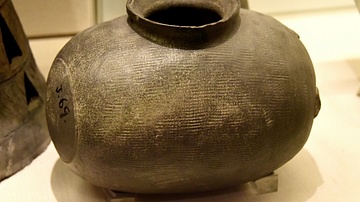
Image
Japanese Funerary Vessel
This Japanese funerary vessel is an example of Sue wares, originally made for tombs. They were probably used for feasting and drinking at the time of the funeral and then buried with the person who had died. They were crafted on a potter's...
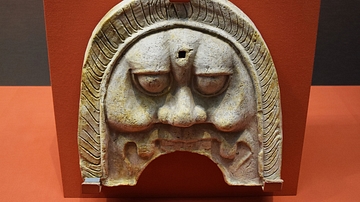
Image
Ancient Japanese Tile
This ridge-end tile is from the former Fuchidaka Temple site in Aichi, Japan. It dates from the 8th century CE, which corresponds to the Nara period in Japanese history. (Tokyo National Museum)
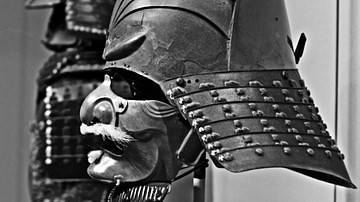
Definition
Medieval Japan
The medieval period of Japan is considered by most historians to stretch from 1185 to 1603 CE. Stand out features of the period include the replacement of the aristocracy by the samurai class as the most powerful social group, the establishment...
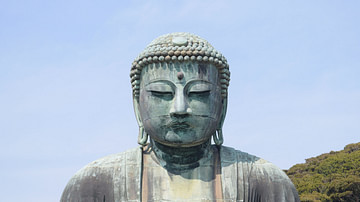
Definition
Kamakura Period
The Kamakura Period or Kamakura Jidai (1185-1333 CE) of medieval Japan began when Minamoto no Yoritomo (1147-1199 CE) defeated the Taira clan at the Battle of Dannoura in 1185 CE. The period is named after Kamakura, a coastal town 48 kilometres...

Video
Ugly History: Japanese American Incarceration Camps - Densho
Dig into the historic injustice of Japanese American incarceration camps, also known as internment camps, during World War II. On December 7, 1941, 16 year-old Aki Kurose shared in the horror of millions of Americans when Japanese planes...
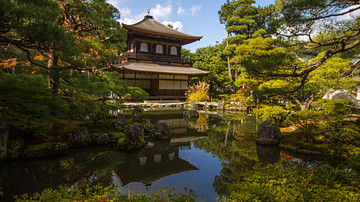
Definition
Ginkakuji
The Ginkakuji Temple in Kyoto, Japan, formally referred to as Jisho-ji and otherwise known as 'The Serene Temple of the Silver Pavilion', was first built in the 15th century CE. It is a Rinzai Zen temple with the complex consisting of the...

Image
Japanese Imperial Regalia
An aritst's impression of three items from the unseen Japanese imperial regalia. In Japanese mythology the sun goddess Amaterasu gave her son Ninigi three gifts to aid his rule on earth: the Yasakani, a fabulous jewel (or pearls or magatama...
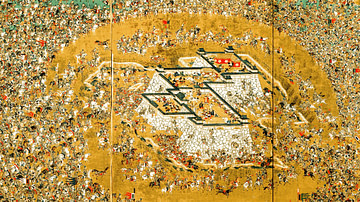
Image
Korean & Chinese Forces Attacking the Japanese Fort of Ulsan
A painting showing Chinese and Korean forces attack the Japanese fort of Ulsan in southern Korea during the Japanese invasions of Korea between 1592 and 1598 CE, otherwise known as the ‘Imjin Wars.’ (Municipal Museu of Fukuoka, Japan)
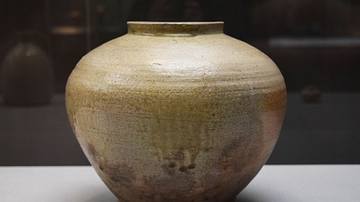
Image
Ancient Japanese Jar
This ancient Japanese jar dates from the 8th century CE, which corresponds to the Nara period in Japanese history. It is made of clay and natural glaze. (Tokyo National Museum)
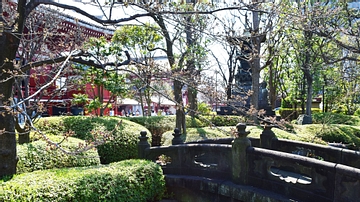
Image
Japanese Gardens around Sensoji Temple
Founded in 645 CE, Sensoji Temple is the oldest and most important Buddhist temple in Tokyo, Japan. It is surrounded by gardens, other temples, and the Asakusa Shinto Shrine.